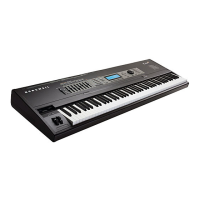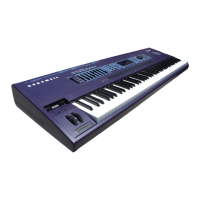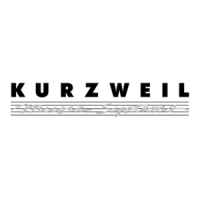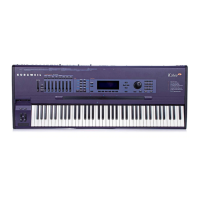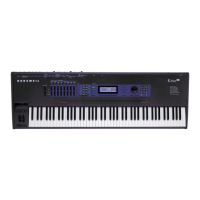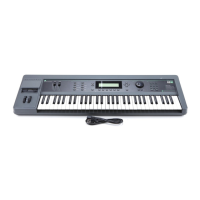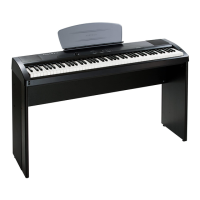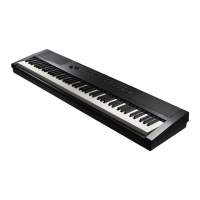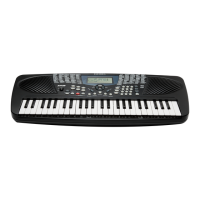Program Edit Mode
KB3 Editor: The PERC1 Page
7-93
Percussion
is is where you turn the percussion eect on or o. Percussion is created by a decaying
envelope applied to one of the nine drawbars. e percussion eect is “single-triggered,”
which means that once it’s triggered, it won’t trigger again until all keys (or whatever you’re
using to trigger notes) go up. So if no keys are down, and you play a chord, percussion gets
applied to all notes in the chord (and in fact, to all notes that are triggered during the short
duration of the percussion envelope). Once the envelope runs its course, any notes you play
while at least one key is held down get no percussion. You can turn percussion on or o by
pressing Assignable button 5 (labeled [Percussion] On/O).
Volume
is parameter switches between loud and soft percussion settings. e actual amplitude is
set on the PERC2 page. You can toggle between loud and soft by pressing Assignable Button
6 (labeled [Percussion] Loud/Soft).
Decay
is parameter switches between fast and slow percussion settings. e actual decay rate is
set on the PERC2 page. You can toggle between slow and fast decay by pressing Assignable
button 7 (labeled [Percussion] Decay F/S).
Harmonic
is parameter switches between high and low harmonic percussion settings. e actual
pitch is controlled by the LowHarm and HighHarm parameters. You can toggle between low
and high harmonics by pressing Assignable Button 8 (labeled [Percussion] Pitch H/L).
VelTrack
Here is where you specify the degree to which key velocity controls percussion volume. A
value of zero corresponds to no velocity tracking, which is like a real tone wheel organ. Other
values add velocity tracking, so that increased velocity results in louder percussion.
LowHarm
Controls which drawbar is used as the basis for the percussion when Harmonic is set to Low.
On an actual tone wheel organ, this is Drawbar 4 (2nd harmonic). e actual pitch obtained
depends on the drawbar tuning.
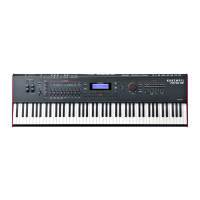
